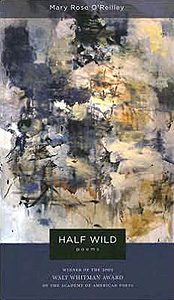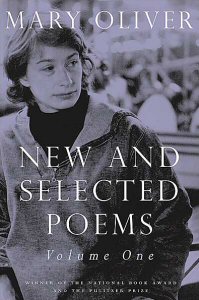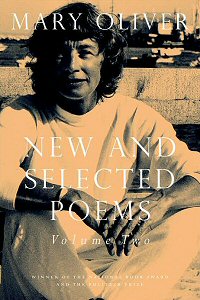from Chel Avery
![Hubble2 Hubble2]() Sometimes to be hopeful in today’s world feels like an obligation I just can’t fulfill. And it’s when my expectations about the future are the most dire, I’ve found, that it is time to give thanks for the present.
In recent years, I’ve been called to the responsibility of being what I call a principled pessimist. At first, this was just a survival strategy. I was raised by a delightful woman who saw the world through rose colored glasses and who had perfected the practice of denial to an art form. I learned at her knees, and in many ways I’ve been blessed by a fundamental inclination mostly to see only the best in everyone and everything. That’s what comes naturally. 
But I have also learned from experience that I am susceptibly gullible. Any halfway convincing person speaking confidently can make me believe that this particular path will take us to the garden, or that brand of snake oil will perfectly fit the bill. So I have taught myself to step back and keep my responsive enthusiasm in check—I have learned skepticism as a discipline to balance what a friend has called my “Mary Poppins side.&rdquo
Sometimes to be hopeful in today’s world feels like an obligation I just can’t fulfill. And it’s when my expectations about the future are the most dire, I’ve found, that it is time to give thanks for the present.
In recent years, I’ve been called to the responsibility of being what I call a principled pessimist. At first, this was just a survival strategy. I was raised by a delightful woman who saw the world through rose colored glasses and who had perfected the practice of denial to an art form. I learned at her knees, and in many ways I’ve been blessed by a fundamental inclination mostly to see only the best in everyone and everything. That’s what comes naturally. 
But I have also learned from experience that I am susceptibly gullible. Any halfway convincing person speaking confidently can make me believe that this particular path will take us to the garden, or that brand of snake oil will perfectly fit the bill. So I have taught myself to step back and keep my responsive enthusiasm in check—I have learned skepticism as a discipline to balance what a friend has called my “Mary Poppins side.&rdquo
![galactic wreckage in Stephan's Quintet galactic wreckage in Stephan's Quintet]() In more recent years, though, I’ve come to think of that skepticism as a social responsibility. I have observed worthy human endeavors slide into chaos when only “positive thinking” is encouraged. Doubt and criticism are silenced to the extent that optimism becomes self reinforcing. A high concentration of very upbeat attitudes spirals into a “can’t lose” mentality, until overly confident actions wind up in disaster. From what I’ve read, this mirrors at least some of what happened leading up to the Wall Street debacle of 2008.
I figure each group needs at least one “designated pessimist.” One of the queries I often bring into worship is whether I am called to that role at a particular time and place. I have often been told, both directly and implicitly, that it is a moral obligation to be an optimist, that it is an insult to God and an injury to society not to be hopeful.
In more recent years, though, I’ve come to think of that skepticism as a social responsibility. I have observed worthy human endeavors slide into chaos when only “positive thinking” is encouraged. Doubt and criticism are silenced to the extent that optimism becomes self reinforcing. A high concentration of very upbeat attitudes spirals into a “can’t lose” mentality, until overly confident actions wind up in disaster. From what I’ve read, this mirrors at least some of what happened leading up to the Wall Street debacle of 2008.
I figure each group needs at least one “designated pessimist.” One of the queries I often bring into worship is whether I am called to that role at a particular time and place. I have often been told, both directly and implicitly, that it is a moral obligation to be an optimist, that it is an insult to God and an injury to society not to be hopeful. ![dust magnified 22 millionX dust magnified 22 millionX]() But I am increasingly comfortable with the understanding that it may be my social obligation to be a pessimist about the future. Over time, I am getting better at it. Maybe I am a better pessimist because of practice, or maybe it’s because my rational mind is telling me that there are more and more reasons for a gloomy outlook in today’s world.
I’ve wondered why is it that Friends don’t give more attention to the spiritual life of the unhopeful person. I see articles and hear ministry on why and how one should be hopeful, but not about how to walk the posthopeful path with integrity and in unity with the Spirit.
So here is something I’ve learned from my own experience. When I’m in a frame of mind that the world is going to hell in a handbasket—ecologically, economically, politically, and with respect to popular culture—then it is absolutely necessary to say thank you. 
But I am increasingly comfortable with the understanding that it may be my social obligation to be a pessimist about the future. Over time, I am getting better at it. Maybe I am a better pessimist because of practice, or maybe it’s because my rational mind is telling me that there are more and more reasons for a gloomy outlook in today’s world.
I’ve wondered why is it that Friends don’t give more attention to the spiritual life of the unhopeful person. I see articles and hear ministry on why and how one should be hopeful, but not about how to walk the posthopeful path with integrity and in unity with the Spirit.
So here is something I’ve learned from my own experience. When I’m in a frame of mind that the world is going to hell in a handbasket—ecologically, economically, politically, and with respect to popular culture—then it is absolutely necessary to say thank you. 
![Hubble3 Hubble3]() Expectation is for the future, but gratitude is for the present, as well as for what has been. In giving thanks, I return to the miracle of the moment at hand. I notice that even though I sorrow, the sky is still blue and astonishing, jokes are still funny, the people I love and admire are still just as lovable and admirable, and the creation and all of us within it are still “fearfully and wonderfully made.&rdquo
I notice that even in complete acceptance of impending doom, I am motivated to recycle, to use public transportation, to donate to causes I believe in, and to write my representative at appropriate times. Caring for the world and the beings living in it is still a way to honor belatedly the gifts we have received and mostly squandered.
Expectation is for the future, but gratitude is for the present, as well as for what has been. In giving thanks, I return to the miracle of the moment at hand. I notice that even though I sorrow, the sky is still blue and astonishing, jokes are still funny, the people I love and admire are still just as lovable and admirable, and the creation and all of us within it are still “fearfully and wonderfully made.&rdquo
I notice that even in complete acceptance of impending doom, I am motivated to recycle, to use public transportation, to donate to causes I believe in, and to write my representative at appropriate times. Caring for the world and the beings living in it is still a way to honor belatedly the gifts we have received and mostly squandered.
![Gratefulness Gratefulness]() Gratefulness, the Heart of Prayer, by David Steindl-Rast, is the book that first inspired me to undertake gratitude as an intentional practice. The author, a Catholic monk, writes “What counts is prayerfulness, not prayers. And the fullness of prayer is grateful living.” When this book came into my life, about fifteen years ago, I fell into a very simple practice. At least a dozen times a day I stop to note what’s here, right now, and to give thanks for it (even if it’s something I wish would go away). Nine times out of ten, just stopping to recognize the gifts that are present, and to be grateful, realigns my perspective into gladness.
One of the topics Steindle-Rast discusses is surprise—the importance of being ready to be surprised by what the world contains. Two kinds of reading kindle my grateful surprise in the world: science and poetry. They affect me in similar ways. Someday I would like to be in a book club that reads science and natural history for spiritual nurture. But it seems that poetry is more easily shared, and it, too, has a similar capacity to awaken delight in the mysteries and powers we live with. A couple poets I love:
Mary Rose O’Reilly, whose Half Wild has been described as “a spiritual biography wound backward, spiraling into the world rather than out of it"
And Mary Oliver, a favorite among Quakers. Her collection of New and Selected Poems comes in two volumes. She writes
That's the big question, the one the world throws at you every morning. "Here you are, alive. Would you like to make a comment?”
Gratefulness, the Heart of Prayer, by David Steindl-Rast, is the book that first inspired me to undertake gratitude as an intentional practice. The author, a Catholic monk, writes “What counts is prayerfulness, not prayers. And the fullness of prayer is grateful living.” When this book came into my life, about fifteen years ago, I fell into a very simple practice. At least a dozen times a day I stop to note what’s here, right now, and to give thanks for it (even if it’s something I wish would go away). Nine times out of ten, just stopping to recognize the gifts that are present, and to be grateful, realigns my perspective into gladness.
One of the topics Steindle-Rast discusses is surprise—the importance of being ready to be surprised by what the world contains. Two kinds of reading kindle my grateful surprise in the world: science and poetry. They affect me in similar ways. Someday I would like to be in a book club that reads science and natural history for spiritual nurture. But it seems that poetry is more easily shared, and it, too, has a similar capacity to awaken delight in the mysteries and powers we live with. A couple poets I love:
Mary Rose O’Reilly, whose Half Wild has been described as “a spiritual biography wound backward, spiraling into the world rather than out of it"
And Mary Oliver, a favorite among Quakers. Her collection of New and Selected Poems comes in two volumes. She writes
That's the big question, the one the world throws at you every morning. "Here you are, alive. Would you like to make a comment?”
![0-8308-3560-1 0-8308-3560-1]() My colleague, Brent Bill, has co-authored another book that stimulates appreciation: Awaken Your Senses: Exercises for Exploring the Wonder of God. Brent and Beth Booram believe that the delight we encounter through our senses—through the joys of sight, sound, scent, texture, and taste—teach us about the Divine and help us to know God. The theme of gratitude is woven into the fabric of a book that is both inspirational and instructive.
My colleague, Brent Bill, has co-authored another book that stimulates appreciation: Awaken Your Senses: Exercises for Exploring the Wonder of God. Brent and Beth Booram believe that the delight we encounter through our senses—through the joys of sight, sound, scent, texture, and taste—teach us about the Divine and help us to know God. The theme of gratitude is woven into the fabric of a book that is both inspirational and instructive.
![one city one city]() Finally, the book that started me pondering this theme is a story not specifically of gratitude but of its flip side, generosity. I believe that gratitude inspires us to be generous, just as generosity in others inspires our gratitude. One City, Two Brothers is a beautifully illustrated children’s story, traditionally told both as a Jewish fable and as an Arab folk tale, about acts of kindness that blessed the site of what came to be the city of Jerusalem.
May you have much to be grateful for,
Finally, the book that started me pondering this theme is a story not specifically of gratitude but of its flip side, generosity. I believe that gratitude inspires us to be generous, just as generosity in others inspires our gratitude. One City, Two Brothers is a beautifully illustrated children’s story, traditionally told both as a Jewish fable and as an Arab folk tale, about acts of kindness that blessed the site of what came to be the city of Jerusalem.
May you have much to be grateful for,
Chel
Nonbook pictures in order: Cats Eye Nebula (Hubble), Galactic Wreckage in Stephan's Quintet (Hubble), Dust at 22millionX magnification, Crab Nebula (Hubble).
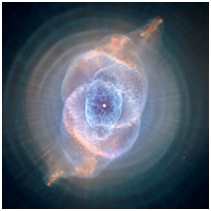 Sometimes to be hopeful in today’s world feels like an obligation I just can’t fulfill. And it’s when my expectations about the future are the most dire, I’ve found, that it is time to give thanks for the present.
In recent years, I’ve been called to the responsibility of being what I call a principled pessimist. At first, this was just a survival strategy. I was raised by a delightful woman who saw the world through rose colored glasses and who had perfected the practice of denial to an art form. I learned at her knees, and in many ways I’ve been blessed by a fundamental inclination mostly to see only the best in everyone and everything. That’s what comes naturally. 
But I have also learned from experience that I am susceptibly gullible. Any halfway convincing person speaking confidently can make me believe that this particular path will take us to the garden, or that brand of snake oil will perfectly fit the bill. So I have taught myself to step back and keep my responsive enthusiasm in check—I have learned skepticism as a discipline to balance what a friend has called my “Mary Poppins side.&rdquo
Sometimes to be hopeful in today’s world feels like an obligation I just can’t fulfill. And it’s when my expectations about the future are the most dire, I’ve found, that it is time to give thanks for the present.
In recent years, I’ve been called to the responsibility of being what I call a principled pessimist. At first, this was just a survival strategy. I was raised by a delightful woman who saw the world through rose colored glasses and who had perfected the practice of denial to an art form. I learned at her knees, and in many ways I’ve been blessed by a fundamental inclination mostly to see only the best in everyone and everything. That’s what comes naturally. 
But I have also learned from experience that I am susceptibly gullible. Any halfway convincing person speaking confidently can make me believe that this particular path will take us to the garden, or that brand of snake oil will perfectly fit the bill. So I have taught myself to step back and keep my responsive enthusiasm in check—I have learned skepticism as a discipline to balance what a friend has called my “Mary Poppins side.&rdquo
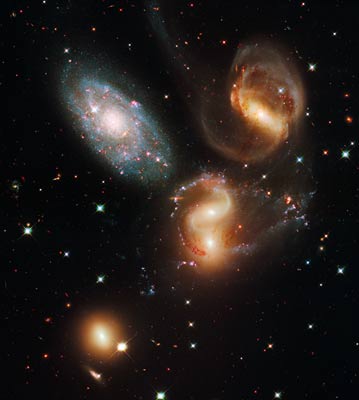 In more recent years, though, I’ve come to think of that skepticism as a social responsibility. I have observed worthy human endeavors slide into chaos when only “positive thinking” is encouraged. Doubt and criticism are silenced to the extent that optimism becomes self reinforcing. A high concentration of very upbeat attitudes spirals into a “can’t lose” mentality, until overly confident actions wind up in disaster. From what I’ve read, this mirrors at least some of what happened leading up to the Wall Street debacle of 2008.
I figure each group needs at least one “designated pessimist.” One of the queries I often bring into worship is whether I am called to that role at a particular time and place. I have often been told, both directly and implicitly, that it is a moral obligation to be an optimist, that it is an insult to God and an injury to society not to be hopeful.
In more recent years, though, I’ve come to think of that skepticism as a social responsibility. I have observed worthy human endeavors slide into chaos when only “positive thinking” is encouraged. Doubt and criticism are silenced to the extent that optimism becomes self reinforcing. A high concentration of very upbeat attitudes spirals into a “can’t lose” mentality, until overly confident actions wind up in disaster. From what I’ve read, this mirrors at least some of what happened leading up to the Wall Street debacle of 2008.
I figure each group needs at least one “designated pessimist.” One of the queries I often bring into worship is whether I am called to that role at a particular time and place. I have often been told, both directly and implicitly, that it is a moral obligation to be an optimist, that it is an insult to God and an injury to society not to be hopeful.  But I am increasingly comfortable with the understanding that it may be my social obligation to be a pessimist about the future. Over time, I am getting better at it. Maybe I am a better pessimist because of practice, or maybe it’s because my rational mind is telling me that there are more and more reasons for a gloomy outlook in today’s world.
I’ve wondered why is it that Friends don’t give more attention to the spiritual life of the unhopeful person. I see articles and hear ministry on why and how one should be hopeful, but not about how to walk the posthopeful path with integrity and in unity with the Spirit.
So here is something I’ve learned from my own experience. When I’m in a frame of mind that the world is going to hell in a handbasket—ecologically, economically, politically, and with respect to popular culture—then it is absolutely necessary to say thank you. 
But I am increasingly comfortable with the understanding that it may be my social obligation to be a pessimist about the future. Over time, I am getting better at it. Maybe I am a better pessimist because of practice, or maybe it’s because my rational mind is telling me that there are more and more reasons for a gloomy outlook in today’s world.
I’ve wondered why is it that Friends don’t give more attention to the spiritual life of the unhopeful person. I see articles and hear ministry on why and how one should be hopeful, but not about how to walk the posthopeful path with integrity and in unity with the Spirit.
So here is something I’ve learned from my own experience. When I’m in a frame of mind that the world is going to hell in a handbasket—ecologically, economically, politically, and with respect to popular culture—then it is absolutely necessary to say thank you. 
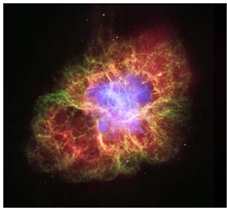 Expectation is for the future, but gratitude is for the present, as well as for what has been. In giving thanks, I return to the miracle of the moment at hand. I notice that even though I sorrow, the sky is still blue and astonishing, jokes are still funny, the people I love and admire are still just as lovable and admirable, and the creation and all of us within it are still “fearfully and wonderfully made.&rdquo
I notice that even in complete acceptance of impending doom, I am motivated to recycle, to use public transportation, to donate to causes I believe in, and to write my representative at appropriate times. Caring for the world and the beings living in it is still a way to honor belatedly the gifts we have received and mostly squandered.
Expectation is for the future, but gratitude is for the present, as well as for what has been. In giving thanks, I return to the miracle of the moment at hand. I notice that even though I sorrow, the sky is still blue and astonishing, jokes are still funny, the people I love and admire are still just as lovable and admirable, and the creation and all of us within it are still “fearfully and wonderfully made.&rdquo
I notice that even in complete acceptance of impending doom, I am motivated to recycle, to use public transportation, to donate to causes I believe in, and to write my representative at appropriate times. Caring for the world and the beings living in it is still a way to honor belatedly the gifts we have received and mostly squandered.
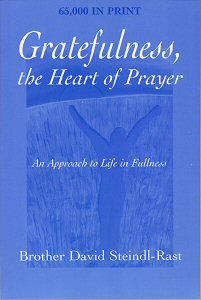 Gratefulness, the Heart of Prayer, by David Steindl-Rast, is the book that first inspired me to undertake gratitude as an intentional practice. The author, a Catholic monk, writes “What counts is prayerfulness, not prayers. And the fullness of prayer is grateful living.” When this book came into my life, about fifteen years ago, I fell into a very simple practice. At least a dozen times a day I stop to note what’s here, right now, and to give thanks for it (even if it’s something I wish would go away). Nine times out of ten, just stopping to recognize the gifts that are present, and to be grateful, realigns my perspective into gladness.
One of the topics Steindle-Rast discusses is surprise—the importance of being ready to be surprised by what the world contains. Two kinds of reading kindle my grateful surprise in the world: science and poetry. They affect me in similar ways. Someday I would like to be in a book club that reads science and natural history for spiritual nurture. But it seems that poetry is more easily shared, and it, too, has a similar capacity to awaken delight in the mysteries and powers we live with. A couple poets I love:
Mary Rose O’Reilly, whose Half Wild has been described as “a spiritual biography wound backward, spiraling into the world rather than out of it"
And Mary Oliver, a favorite among Quakers. Her collection of New and Selected Poems comes in two volumes. She writes
That's the big question, the one the world throws at you every morning. "Here you are, alive. Would you like to make a comment?”
Gratefulness, the Heart of Prayer, by David Steindl-Rast, is the book that first inspired me to undertake gratitude as an intentional practice. The author, a Catholic monk, writes “What counts is prayerfulness, not prayers. And the fullness of prayer is grateful living.” When this book came into my life, about fifteen years ago, I fell into a very simple practice. At least a dozen times a day I stop to note what’s here, right now, and to give thanks for it (even if it’s something I wish would go away). Nine times out of ten, just stopping to recognize the gifts that are present, and to be grateful, realigns my perspective into gladness.
One of the topics Steindle-Rast discusses is surprise—the importance of being ready to be surprised by what the world contains. Two kinds of reading kindle my grateful surprise in the world: science and poetry. They affect me in similar ways. Someday I would like to be in a book club that reads science and natural history for spiritual nurture. But it seems that poetry is more easily shared, and it, too, has a similar capacity to awaken delight in the mysteries and powers we live with. A couple poets I love:
Mary Rose O’Reilly, whose Half Wild has been described as “a spiritual biography wound backward, spiraling into the world rather than out of it"
And Mary Oliver, a favorite among Quakers. Her collection of New and Selected Poems comes in two volumes. She writes
That's the big question, the one the world throws at you every morning. "Here you are, alive. Would you like to make a comment?”
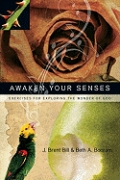 My colleague, Brent Bill, has co-authored another book that stimulates appreciation: Awaken Your Senses: Exercises for Exploring the Wonder of God. Brent and Beth Booram believe that the delight we encounter through our senses—through the joys of sight, sound, scent, texture, and taste—teach us about the Divine and help us to know God. The theme of gratitude is woven into the fabric of a book that is both inspirational and instructive.
My colleague, Brent Bill, has co-authored another book that stimulates appreciation: Awaken Your Senses: Exercises for Exploring the Wonder of God. Brent and Beth Booram believe that the delight we encounter through our senses—through the joys of sight, sound, scent, texture, and taste—teach us about the Divine and help us to know God. The theme of gratitude is woven into the fabric of a book that is both inspirational and instructive.
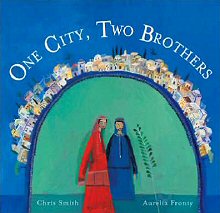 Finally, the book that started me pondering this theme is a story not specifically of gratitude but of its flip side, generosity. I believe that gratitude inspires us to be generous, just as generosity in others inspires our gratitude. One City, Two Brothers is a beautifully illustrated children’s story, traditionally told both as a Jewish fable and as an Arab folk tale, about acts of kindness that blessed the site of what came to be the city of Jerusalem.
May you have much to be grateful for,
Finally, the book that started me pondering this theme is a story not specifically of gratitude but of its flip side, generosity. I believe that gratitude inspires us to be generous, just as generosity in others inspires our gratitude. One City, Two Brothers is a beautifully illustrated children’s story, traditionally told both as a Jewish fable and as an Arab folk tale, about acts of kindness that blessed the site of what came to be the city of Jerusalem.
May you have much to be grateful for,Chel
Nonbook pictures in order: Cats Eye Nebula (Hubble), Galactic Wreckage in Stephan's Quintet (Hubble), Dust at 22millionX magnification, Crab Nebula (Hubble).
